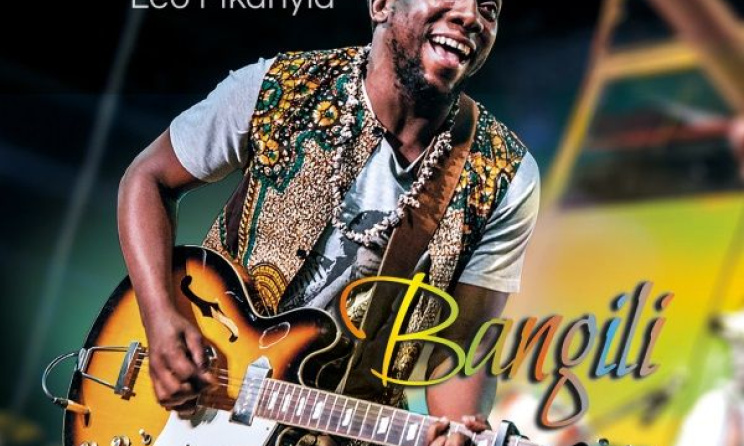Leo Mkanyia – Bangili
Artist: Leo Mkanyia
Album: Bangili
Label, Year: Ketebul Music, 2016
 Cover image for Leo Mkanyia's new album, Bangili. Photo: Ketebul Music
Cover image for Leo Mkanyia's new album, Bangili. Photo: Ketebul Music
Now on his third album, Mkanyia is the proverbial apple that didn’t fall too far, seeing as he learnt music from his father, Henry Mkanyia, an accomplished Afro-jazz guitarist who played with Mlimani Park Orchestra in Dar es Salaam, Tanzania.
With his new album launched this week and produced by Ketebul Music in Nairobi, Kenya, Mkanyia has claimed his place at the helm of Swahili blues, a genre he coined from a cocktail of mdundiko, taarab, chakacha and segere – Tanzanian traditional rhythms that have influenced pop music – and classic blues.
The 35 year old serves up a diverse menu with this 15-track album, with masterpieces that range in style from the mellow ‘Ndovu’, an anti-poaching anthem, to ‘Moro Moro’, which will have you tapping to its jaunty beat.
Mkanyia features Kenyan benga artists Winyo and Makadem in the title track, a beautifully executed love song in which he mourns a lost lover. Nyota Ndogo and Juma Setumbi also feature in some songs.
Not only is Mkanyia a fine guitarist, he is also a natural storyteller. He assumes the role of commentator, taking a jab at young people’s proclivity for laziness and shortcuts in ‘Mwanangu’. In ‘Kiingereza’ he laments the use of English as the language of instruction in schools, saying he failed not because he was dull-witted but because the language was foreign to him.
‘Maisha Mjini’ is a waist-gyrating chakacha tune, a journey through the neighbourhoods of Nairobi and Dar es Salaam and also a captivating urban story of how Mkanyia lost his Tanzanian lover to a man in Nairobi.
But his songs aren’t leaden with a didactic sense of significance; this activist streak is tastefully juxtaposed with pathos. Tired of living in foreign lands, he is militant about returning home in ‘Narudi Nyumbani' but sentimental in 'Wazazi Wangu', where he laments being abandoned by his parents.
Mkanyia also seasons his songs with ad-libs that inject humour and even nonsensical embellishments to his music, the kind you find in Congolese Lingala music. He sings in Kiswahili and French, with smatterings of English.
Mkanyia, who seems keen on preserving the influences of traditional East African music is in a genre that is often shunned at home and appreciated abroad. However, he is part of the young, vibrant artists who will be remembered for making local music cool again.



















Commentaires
s'identifier or register to post comments